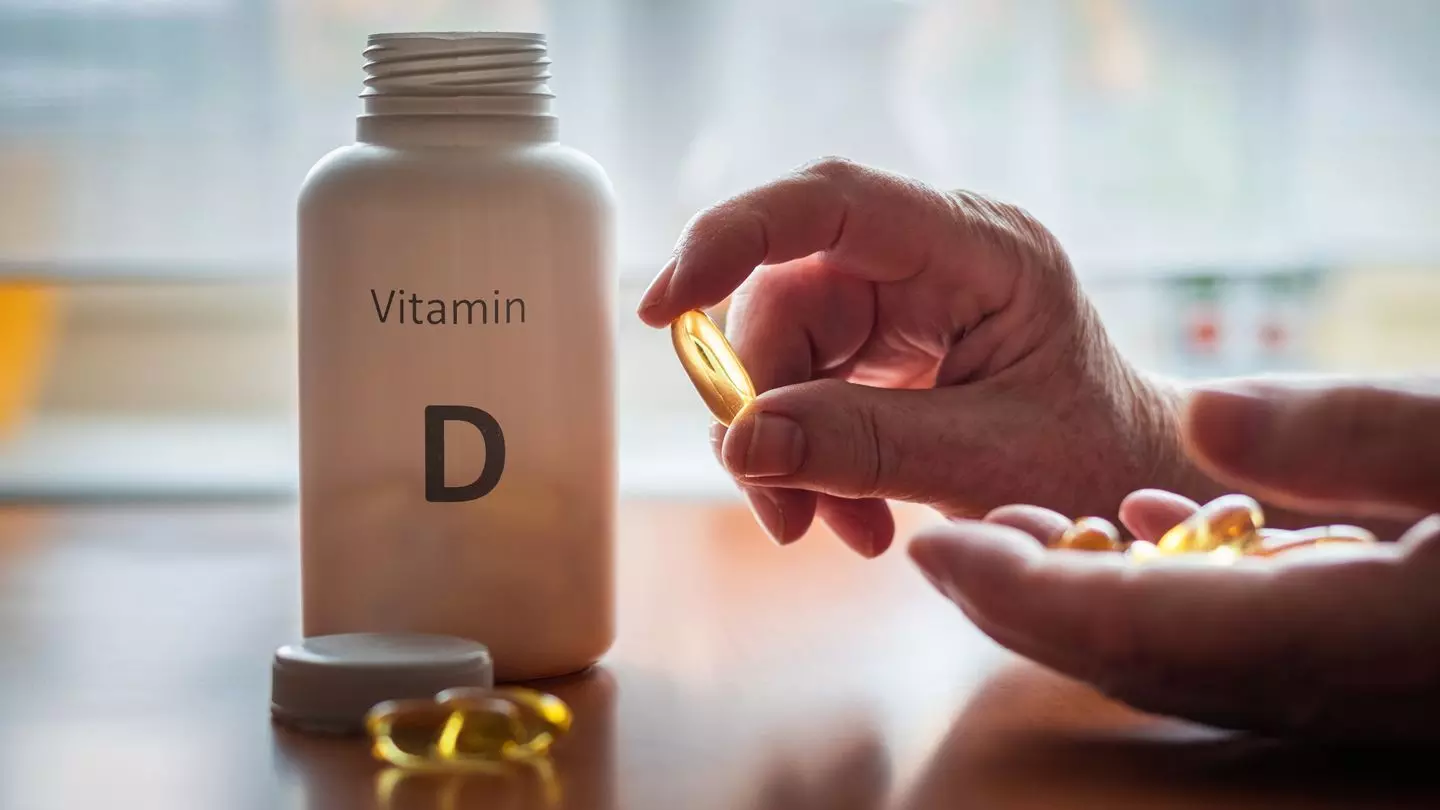- Home
- Medical news & Guidelines
- Anesthesiology
- Cardiology and CTVS
- Critical Care
- Dentistry
- Dermatology
- Diabetes and Endocrinology
- ENT
- Gastroenterology
- Medicine
- Nephrology
- Neurology
- Obstretics-Gynaecology
- Oncology
- Ophthalmology
- Orthopaedics
- Pediatrics-Neonatology
- Psychiatry
- Pulmonology
- Radiology
- Surgery
- Urology
- Laboratory Medicine
- Diet
- Nursing
- Paramedical
- Physiotherapy
- Health news
- AYUSH
- State News
- Andaman and Nicobar Islands
- Andhra Pradesh
- Arunachal Pradesh
- Assam
- Bihar
- Chandigarh
- Chattisgarh
- Dadra and Nagar Haveli
- Daman and Diu
- Delhi
- Goa
- Gujarat
- Haryana
- Himachal Pradesh
- Jammu & Kashmir
- Jharkhand
- Karnataka
- Kerala
- Ladakh
- Lakshadweep
- Madhya Pradesh
- Maharashtra
- Manipur
- Meghalaya
- Mizoram
- Nagaland
- Odisha
- Puducherry
- Punjab
- Rajasthan
- Sikkim
- Tamil Nadu
- Telangana
- Tripura
- Uttar Pradesh
- Uttrakhand
- West Bengal
- Medical Education
- Industry
Low vitamin D levels associated with increased cardiovascular disease risk in young adults

Low vitamin D levels associated with increased cardiovascular disease risk in young adults suggests a new study published in the Journal of Endocrinological Investigation.
Vitamin D deficiency is related to metabolic disturbances. Indeed, a poor vitamin D status has been usually detected in patients with cardiovascular disease (CVD). However, the relationship between vitamin D and CVD risk factors in young adults remains controversial at present. This study aimed to examine the association between circulating 25-hydroxyvitamin D (25(OH)D) and CVD risk factors in young adults. The present cross-sectional study included a cohort of 177 young adults aged 18-25 years old (65% women). 25(OH)D serum concentrations were assessed using a competitive chemiluminescence immunoassay. Fasting CVD risk factors (i.e., body composition, blood pressure, glucose metabolism, lipid profile, liver, and inflammatory markers) were determined by routine methods. A panel of 63 oxylipins and endocannabinoids (eCBs) was also analyzed by targeted metabolomics. Results: Circulating 25(OH)D concentrations were inversely associated with a wide range of CVD risk factors including anthropometrical (all P ≤ 0.005), body composition (all P ≤ 0.038), glucose metabolism (all P ≤ 0.029), lipid profile (all P < 0.035), liver (all P ≤ 0.011), and pro-inflammatory biomarkers (all P ≤ 0.030). No associations of serum 25(OH)D concentrations were found with pro-inflammatory markers (all P ≥ 0.104), omega-6 and omega-3 oxylipins, nor eCBs concentrations or their analogues (all P ≥ 0.05). The present findings support the idea that 25(OH)D could be a useful predictor of CVD risk in young individuals.
Reference:
Amaro-Gahete FJ, Vázquez-Lorente H, Jurado-Fasoli L, Dote-Montero M, Kohler I, Ruiz JR. Low vitamin D levels are linked with increased cardiovascular disease risk in young adults: a sub-study and secondary analyses from the ACTIBATE randomized controlled trial. J Endocrinol Invest. 2024 Jan 4. doi: 10.1007/s40618-023-02272-4. Epub ahead of print. PMID: 38172418.
Keywords:
Low vitamin D, vitamin levels, cardiovascular disease, risk, young adults, Amaro-Gahete FJ, Vázquez-Lorente H, Jurado-Fasoli L, Dote-Montero M, Kohler I, Ruiz JR, 25-hydroxyvitamin D; Cardiovascular risk; Inflammation; Oxylipins; Young adults
Dr. Shravani Dali has completed her BDS from Pravara institute of medical sciences, loni. Following which she extensively worked in the healthcare sector for 2+ years. She has been actively involved in writing blogs in field of health and wellness. Currently she is pursuing her Masters of public health-health administration from Tata institute of social sciences. She can be contacted at editorial@medicaldialogues.in.


